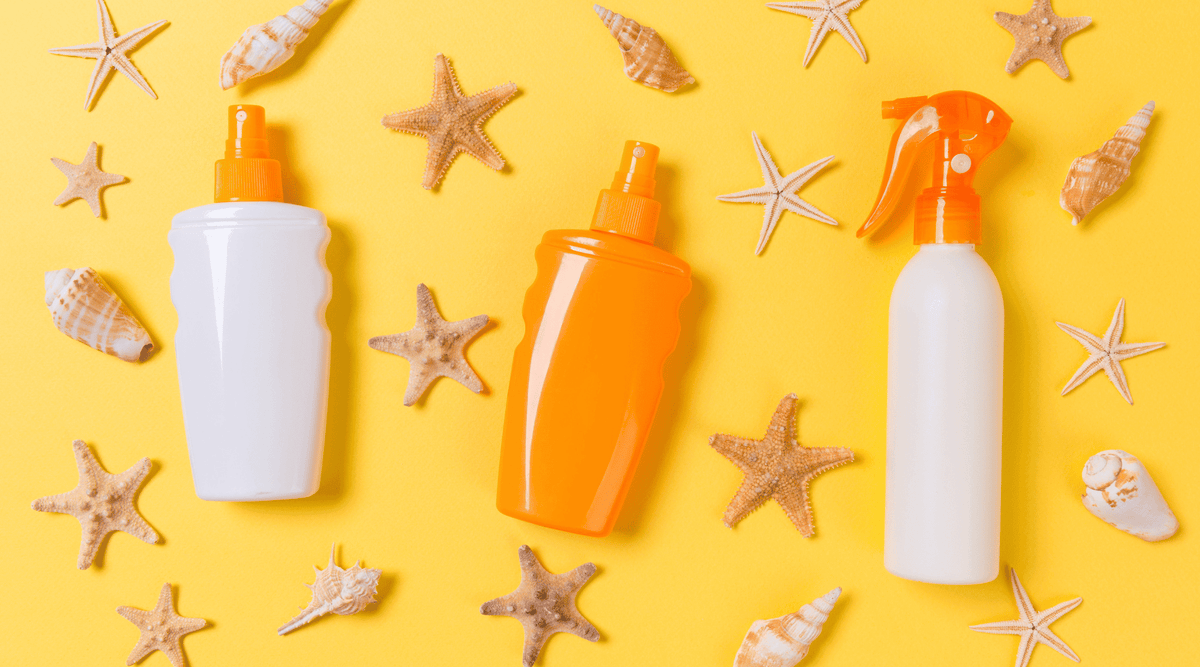

Welcome to summer! As the sun shines brighter and the days get longer, it's the perfect time to focus on a crucial aspect of skin care: UV safety. With UV Safety Awareness Month in full swing, let's dive into why it's so important to protect your skin, explore different types of sunscreens, and ensure you have the knowledge to keep your skin healthy and radiant all summer long.
Esthetician Approved Skin Care
Written by a licensed esthetician with 17 years experience and a passion for skin care.
We believe in healthy skin care and non-toxic ingredients.
Impact of UV Rays on the Skin
UV (ultraviolet) rays are invisible rays that are part of the sun's energy. They are divided into two main types: UVA and UVB.
While UVA rays penetrate deep into the skin and can cause long-term damage like wrinkles and age spots, UVB rays are the main cause of sunburn. Both types can contribute to skin cancer, making it essential to protect your skin from these harmful effects.

UV safety isn't just about avoiding sunburn; it's about maintaining overall skin health. Long-term exposure to UV rays can accelerate the aging process, leading to premature wrinkles, leathery skin, and pigmentation issues. Most importantly, it significantly increases the risk of skin cancer, including melanoma, which can be deadly.
Types of Sunscreen: Pros and Cons
Choosing the right sunscreen is key to effectively protect your skin. Here's a breakdown of the different types of sunscreens and their benefits and drawbacks.
Absorbing (Chemical) Sunscreens

Pros:
- Absorbs quickly into the skin without leaving a white residue.
- Lightweight and less likely to clog pores, making it ideal for daily use.
- Often combined with other skin-care ingredients like antioxidants.
Cons:
- Can cause irritation for sensitive skin types.
- Needs to be applied 20 minutes before sun exposure to be effective.
Best For:
- Oily Skin: Look for oil-free, non-comedogenic formulas.
- Daily Use: Ideal for those who want a lightweight option that blends well with makeup.
- Active Ingredients: avobenzone, octinoxate, oxybenzone, octocrylene, homosalate and octisalate
Physical (Mineral) Sunscreens

Pros:
- Provides immediate protection upon application.
- Less likely to cause irritation, making it suitable for sensitive skin.
- Often contains soothing ingredients like zinc oxide and titanium dioxide.
Cons:
- Can leave a white cast on the skin, especially on darker skin tones.
- Thicker texture can feel heavier on the skin.
Best For:
- Sensitive Skin: Gentle and less likely to cause reactions.
- Dry Skin: Often formulated with moisturizing ingredients.
- Active Ingredients: titanium dioxide and zinc oxide
Combination (Hybrid) Sunscreens

Pros:
- Offers broad-spectrum protection by combining the benefits of both chemical and physical blockers.
- Balances the lightweight feel of chemical sunscreens with the immediate protection of physical ones.
Cons:
- Can still cause irritation for very sensitive skin types.
- Might require reapplication more frequently depending on activity levels.
Best For:
- Normal Skin: A good all-around option for those who want comprehensive protection.
- Combination Skin: Balances the needs of both oily and dry areas.
- Active Ingredients: avobenzone, octinoxate, oxybenzone, octocrylene, homosalate, octisalate, titanium dioxide and zinc oxide
🤩
Do you want product recommendations?
This skin care quiz can help make your glow up a success!
How to Protect Your Skin
Did you know that July is UV Safety Awareness Month? A time to raise awareness of the importance of sun protection and encourage healthy skin-care habits. This month, take the time to evaluate your current sun protection practices and make any necessary changes to protect your skin.

Here are some tips to get you started:
-
Apply Sunscreen Daily: Even on cloudy days, UV rays can penetrate through the clouds.
- Seek Shade: Especially during peak sun hours (10 a.m. to 4 p.m.).
- Wear Protective Clothing: Hats, sunglasses, and long sleeves can provide additional protection.
- Stay Hydrated: Keeping your skin hydrated helps it maintain its barrier function and resilience.
This UV Safety Awareness Month, let's prioritize our skin's health and beauty. Remember, the best way to enjoy the sun is to protect your skin!

Summary
UV safety is crucial for preventing skin damage and skin cancer.
Chemical sunscreens are great for oily skin and daily use, while physical sunscreens are better for sensitive and dry skin.
Combination sunscreens offer balanced protection for normal and combination skin.
UV Safety Awareness Month is a great time to reassess and improve your sun protection habits.
Must-Have Products to Protect Your Skin
FAQs About Skin Protection
Why is it important to protect your skin?
Protecting your skin helps prevent sunburn, premature aging, and reduces the risk of skin cancer.
How can I protect my skin daily?
Use a broad-spectrum sunscreen every day, seek shade during peak sun hours, wear protective clothing, and stay hydrated.
What does protect your own skin mean?
It means taking proactive steps to shield your skin from harmful UV rays through sunscreen, clothing, and sun-smart behaviors.
Is it too late to protect your skin?
It's never too late! Start protecting your skin now to reduce further damage and improve your skin's health over time.







